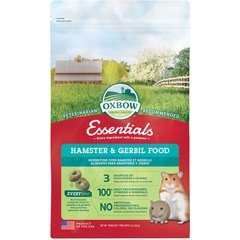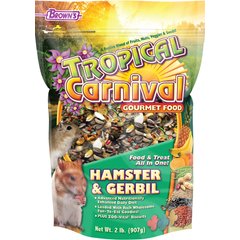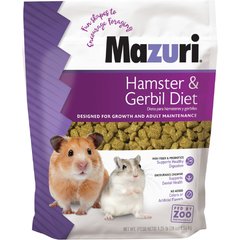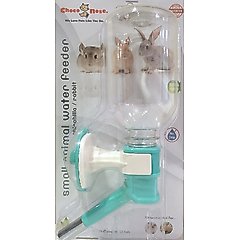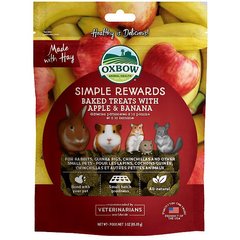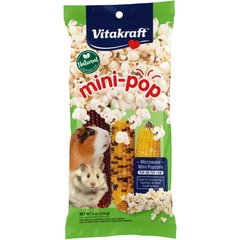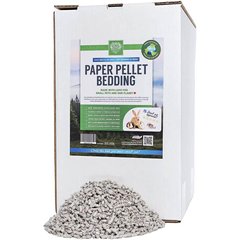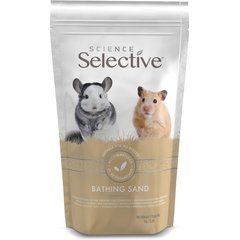How Long Do Gerbils Live?
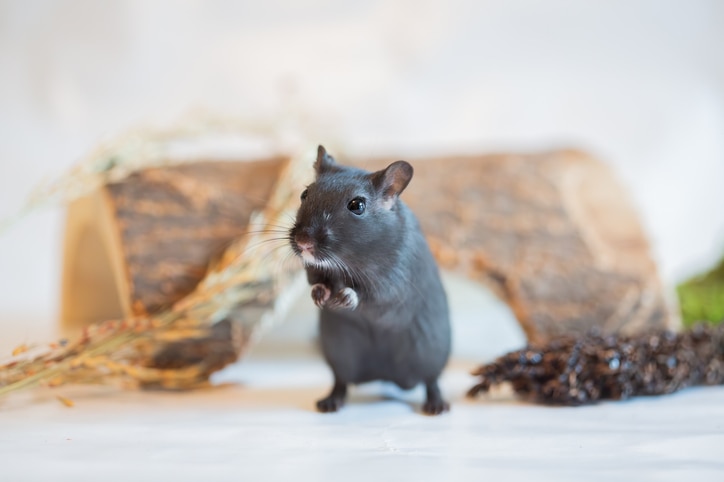
Photo by Kanashi / iStock / Getty Images Plus
If you’re considering a pet gerbil, you already know they’re small and adorable, but you might be wondering, how long do gerbils live? We spoke to two veterinarians about the average gerbil lifespan and how to help your gerbil live the best, longest life possible.
How Long Do Gerbils Live?
Gerbils are small, burrowing rodents native to desert regions of Asia, Africa, and India. While there are many species, the Mongolian gerbil is the most common pet variety.
According to Susan Tyson, VMD, MS, owner of Avian & Exotic Philly Vet Medical Surgical Clinic, in Philadelphia, the average life expectancy of a pet gerbil is 2 to 4 years.
Some outliers have been known to live longer. The oldest on record was a Mongolian gerbil named Sahara, who lived an impressive 8 years and 4 months.
Dr. Tyson says gerbils have a much shorter lifespan in the wild, often less than a year, due to predators, disease, and environmental challenges.
Gerbil Life Stages
Like all pets, gerbils go through distinct life stages, including:
- Pups (up to 4 weeks): Newborn gerbils, known as pups, are small, hairless, and entirely reliant on their mother for warmth and nourishment. Their eyes and ears stay closed for the first two weeks. By 4 weeks old, they begin exploring and nibbling on solid food.
- Juveniles (4 to 12 weeks): Most gerbils are ready for adoption between 6 and 8 weeks of age. Paired gerbils will usually begin to mate around 12 weeks old.
- Adults (3 to 24 months): Adult gerbils are at their peak health and energy during this time.
- Seniors (2+ years): As gerbils age, they might slow down slightly, sleep more, and experience changes in fur quality or weight. But most gerbils remain active throughout their senior years.
What Affects How Long a Gerbil Lives?
Here are the key factors that influence a gerbil’s lifespan:
- Gender: Some research suggests that female gerbils tend to live longer than males.
- Genetics: Some gerbils have a longer natural lifespan while others might be prone to health issues.
- Nutrition: A well-balanced, gerbil-specific diet provides essential nutrients to support overall health and longevity.
- Environment: An inadequate environment—such as a small, unclean habitat—or a lack of enrichment can lead to stress, which might shorten a gerbil’s lifespan.
- Illness: Gerbils are prone to certain health issues, which can impact their lifespan.
Can You Extend the Lifespan of Your Gerbil?
While you can’t change genetics, receiving excellent care might help your gerbil live longer. Here’s what you can do to help maximize their lifespan.
Feed a Nutritious Diet
A gerbil’s diet plays a significant role in their overall health. According to Anna Foster, DVM, travel ER veterinarian at Veterinary Emergency Group and co-founder of The Evolved Vets, based in New York City, commercial pellets or blocks formulated for gerbils should make up the bulk of their diet.
Dr. Tyson advises choosing a commercial diet that’s free of nuts, seeds, and dried fruit, as high-fat and high-calorie foods can contribute to obesity and nutritional imbalances.
A couple of gerbil foods Dr. Tyson recommends are Oxbow Essentials Healthy Handfuls Gerbil Food and Mazuri Gerbil Food.
Recommended Products
In addition to pellets or blocks, Dr. Tyson says gerbil parents can offer a variety of veggies and hays, such as:
- Dandelion greens
- Spinach
- Cucumbers
- Carrots
- Timothy hay
- Kale
- Bok choy
- Broccoli
- Parsley
- Red bell pepper
- Basil
For occasional treats, Dr. Tyson suggests small amounts of:
- Blackberries
- Strawberries
- Cherries (pit removed)
- Air-popped popcorn (plain)
- A tiny piece of almond or walnut
- Commercial treats, such as Oxbow Simple Rewards Baked Apple & Banana Treats, can also be given in moderation.
Dr. Foster adds that gerbils should always have access to fresh water, which can be provided through a water bottle that securely attaches to the side of their enclosure.
Recommended Products
Provide Safe Companionship
As social animals, gerbils should be housed in pairs to prevent loneliness. However, housing incompatible pairs can lead to serious fights. This is especially common in males, and injuries from fighting can be fatal.
To reduce aggression, housing same-sex pairs from the same litter is the best option. But keep in mind that even bonded gerbils can have conflicts, so watch for warning signs, such as chasing, excessive squeaking, or puffed-up fur, and separate if needed.
Provide a Spacious, Gerbil-Friendly Enclosure
A minimum 20-gallon tank is recommended for a pair of gerbils, but choose the largest tank you can accommodate, as gerbils require a spacious enclosure for running, climbing, and burrowing.
Wire and plastic cages are not ideal, as they pose injury and escape risks. A glass aquarium with a secure mesh top is the safest choice.
Dr. Tyson recommends using recycled paper bedding, such as Small Pet Select Recycled Pelleted Paper Bedding, with at least 3 inches of depth at the base of their enclosure. “Wood chips, especially aspen, pine, and cedar, should never be used to house gerbils, as these can irritate their respiratory tract, face, and eyes,” she cautions.
Recommended Product
Provide Enrichment
Providing enrichment items such as play walls, hideouts, wood nibblers, and running wheels in your gerbil’s enclosure will allow for natural behaviors like hiding, playing, and exploring, Dr. Tyson says. “You can add low shelves to increase cage space, but make sure they are at a safe height,” she adds. Your shelves shouldn’t be more than 5 inches above the top of the deep bedding layer below, so that your gerbil isn’t injured if they fall off the shelf.
Stay on Top of Cleaning
“It’s important to routinely clean your gerbil’s cage—at least once a week—not only to keep it sanitary but as a way of monitoring their bowel movements and urination for any abnormalities,” Dr. Tyson says.
Between weekly cleanings, spot-clean daily by removing soiled bedding, droppings, and hidden stale food.
Offer Daily Out-Of-Cage Exercise
“Gerbils should have at least two hours of supervised exercise time per day outside of their enclosure,” Dr. Tyson says. She advises setting this up in a secure, gerbil-friendly area—blocking any escape routes, removing toxic materials, providing soft flooring, and securing cords to prevent chewing.
Give Routine Baths
Gerbils should have access to a sand bath at least once a week to help keep their fur clean and free of excess oils, Dr. Tyson says. She recommends placing a shallow dish of bath sand (not dust), diatomaceous earth, or cornstarch inside the enclosure, making sure it’s large enough for your gerbil to roll in comfortably.
Recommended Products
Schedule Regular Veterinary Appointments
“Gerbils are susceptible to a variety of diseases that can negatively affect their longevity if not addressed,” Dr. Tyson says. She says the most common diseases include:
- Epilepsy
- Heart disease
- Nasal dermatitis
- Tail injury/degloving (skin stripped from the tail, often requiring amputation)
- Obesity
- Dental disease
- Trauma
As such, routine veterinary checkups are key to detecting health issues early. According to Dr. Tyson, the general guidelines are:
- Age 3 months to 1 year: Annual vet visit with a comprehensive exam and blood work
- Age 2+ years: Twice-yearly checkups with a comprehensive exam, plus annual blood work
Between vet checkups, Dr. Tyson recommends monitoring your gerbil’s appetite, water intake, appearance, bowel movements, urination, and behavior. If you notice any unusual symptoms, contact your veterinarian for guidance.
With proper care, a healthy diet, and plenty of enrichment, you’ll be giving your gerbil the best chance at a happy and fulfilling life by your side.
